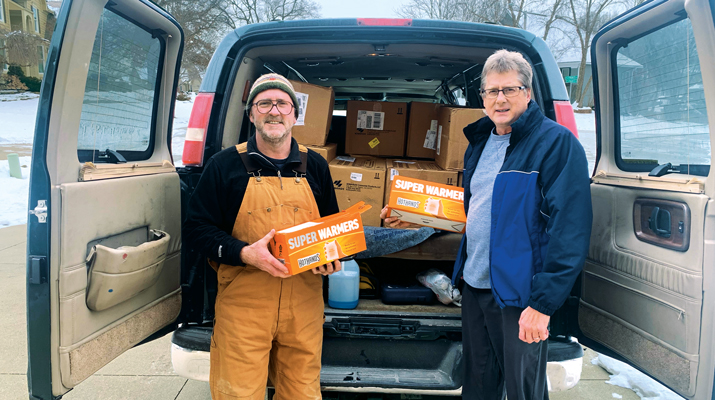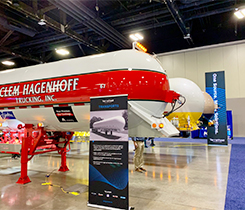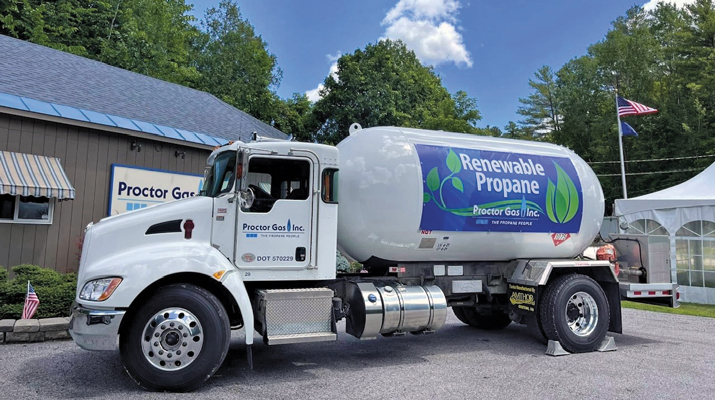How after-hours out-of-gas situation turns troublesome for marketer
They say the best attorneys can successfully argue both sides of a case. However, it is apparent today that the media and social politics clearly influence liability issues. Outcomes of such debates are not always fair but usually are deemed politically correct for the greater good of society.
Small mistakes can be fanned into big problems with the right slant. It seems that’s what happened when a Kentucky jury assigned $4.1 million in compensatory and punitive liability damages to a propane marketer for not promptly following up on a commercial manufacturer’s after-hours out-of-gas situation.
Punitive blame was assigned to the marketer, even though the manufacturer’s employees illegally transported an out-of-date 100-pound cylinder from one of their backyards to the business site, intending to hook it up (without being qualified) when the leak and explosion occurred, resulting in one death.
The defense alleged the deceased employee of the manufacturing company failed to use reasonable care for his own safety, comply with codes governing the handling of hazardous material and was under the influence of alcohol at the time of the explosion. Apparently that side of the argument did not exonerate the marketer.
This is scary stuff and reflects how exposures created by customers can also create liability. The punitive damages seem crazy, but I assume they are being used as compensation for wrongful death because the victim’s estate doesn’t have money or insurance limits to cover the results of his actions.
Punitive damages are defined as damages exceeding simple compensation and awarded to punish the defendant. Each state has different laws regarding punitive damages and whether or not they are covered by insurance. I advise that you review this issue with your insurance agent regarding the states in which you have operations.
This was an out-of-gas situation for a wood veneer plant. Poor planning on plant management’s part, poor communication with the marketer about use and the need to order gas created this exposure. The convoluted emergency declaration to the marketer’s emergency number may have been related to a shift in process at the plant. Does poor planning on a customer’s part constitute an emergency?
The jury entered a mixed verdict, holding the marketer failed to use ordinary care in the operation of its business by not responding to an emergency call within 60 minutes. Even though this was May in Kentucky, where an out of gas is usually not an emergency, a simple call by the marketer to identify the issue, review options for delivery and warn manufacturer employees not to tamper with the system may have prevented the tragic outcome.
This decision awards 60 percent of the liability to the commercial customer and its employee who created the situation and 40 percent to the marketer plus punitive damages. I assume the marketer is the only one with adequate money and insurance.
In hindsight, it may be a good case for tank monitoring, depending on the annual load and seasonal needs, as well as the need for a clearly spelled-out contract regarding fill-notification requirements and responsibilities. However, the real issue here is no one from the propane company promptly called the manufacturer to inquire about the emergency-line call.
This punitive verdict brings up some good safety meeting topics:
- How well does your company define and communicate customer policies for out-of-gas situations?
- Do you know the locations of your tanks? (The 100-pound cylinder in this case had the marketer’s name on it and was unfit for filling.)
- Are you carrying high-enough liability limits to cover such an award, including punitive damages equal to or above the value of your company?
- How comprehensive are your after-hours policies and procedures in terms of response and determining what constitutes an emergency? Do you always meet the 60-minute threshold?
These issues came up at a critical time for the commercial customer and the marketer, resulting in the death of an employee and a huge liability award. You don’t have to experience such a punitive liability situation to avoid one. Discuss the problems and design solutions. It’s the safety way.
Jay Johnston is an insurance executive, business management consultant and inspirational safety speaker in the propane industry. He can be reached at jay@thesafetyleader.com or call him at 952-935-5350.
















